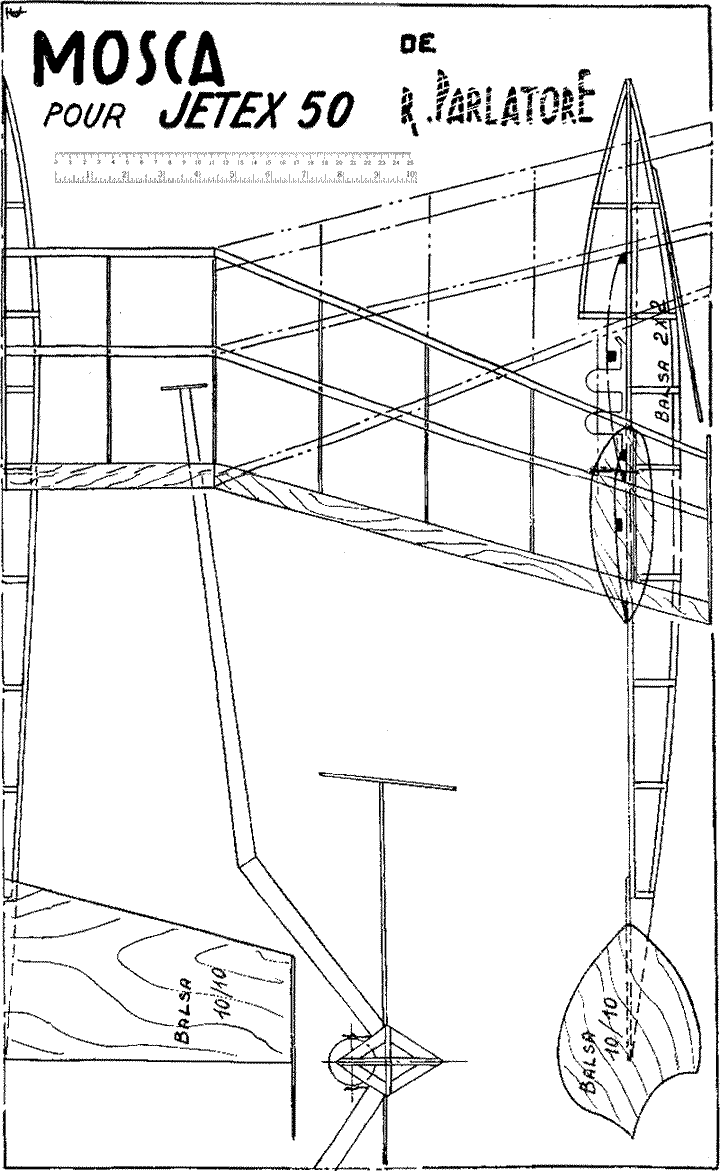|
|
|
|||
|
|
||||
|
|
||||
| Plan: Mosca | ||||
|
|
HOME | SITE MAP | FORUM | CONTACT |
|
||
|
ABOUT | MOTORS | MODELS | ARCHIVE | HISTORY | STORE | FAQ | LINKS
|
|
|
|
||||||||||||||
|
Mosca
by R. Parlatoré Translated from Le Modèle Réduit d'Avion, October 1953 (p. 8) Mosca is a powered glider for the Jetex 50. It's a small craft, somewhat supersonic in its appearance, but having a quite adequate horizontal surface area of 3 dm2. |
|
||||||||||||||

Mosca has the motor mounted in the upper part of the fuselage. This positioning has absolutely no detrimental effect on Mosca's flying capabilities and my fingers appreciate staying in the cool. Construction is very simple. The built-up fuselage is designed for minimum weight. It is built around a horizontal spine of 1.5 mm. balsa. Glued to it is the perforated vertical spine, also in 1.5 mm. balsa. Take care that both webs are truly at right angles. Reinforcing the rear section, which is slender and fragile, are 1 mm. cross-pieces. The Jetex motor is mounted on a plywood platform. The tail is made from 1.5 mm. balsa, sanded very smooth. The wings are of standard construction. Ribs are in 1 mm. balsa, spars and leading edge in 2 × 2, and the trailing edge is formed from 1 mm. strip. The wings are glued to two blocks of 5 mm. balsa, integral with the fuselage. Specifications Length: 30 cm. Wingspan: 40 cm. Weight, unloaded: 19 g. Weight, loaded: 21 g. |

-
Le Modèle Réduit d'Avion, October 1953 (p. 8)
|
||||||||||||||
|
|
|||||||||||||||
|
|
|
||||||||||||||
|
Plan for Mosca
(A larger copy of the plan (GIF format) is also available to
view or download.) View translations of French terms used in model plans.  |
|||||||||||||||
|
|
|
||||||||||||||
|
|
|
|
|
|
|
|
Acknowledgements - Article and plan contributed by Jean Thiry - Translation from the French by John Miller Crawford |
|
|
|
|
ABOUT | MOTORS | MODELS | ARCHIVE | HISTORY | STORE | FAQ | LINKS |
|
|
Terms of Use
|
Queries? Corrections? Additions?
Please
contact us.
|
|